
Copernical Team
These freeze-drying algae can awaken from cryostasis, and could help spaceflights go farther
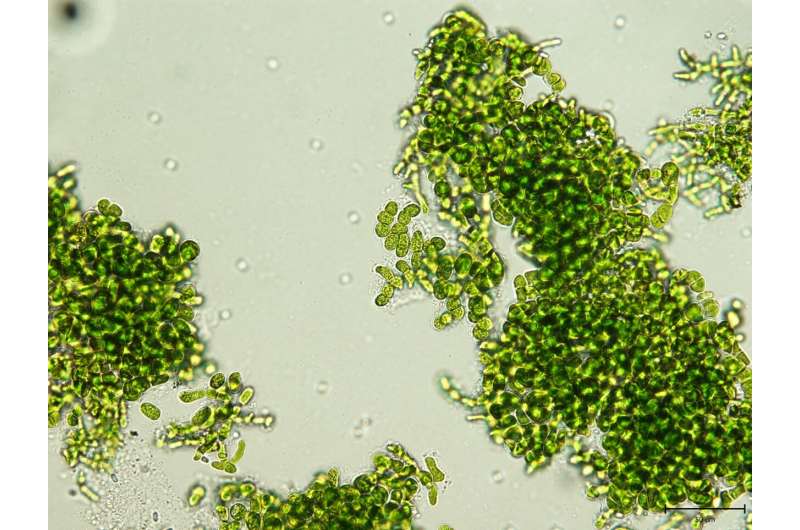
Antarctica's McMurdo Dry Valleys contain some of Earth's coldest and driest deserts. The environment there is so extreme that the Dry Valleys have been used as Mars analogs to test prototype equipment for future Mars exploration.
To survive these harsh conditions, layers of algae and bacteria in the Dry Valleys overwinter in a freeze-dried state, coming back to life in the summer when neighboring glaciers melt and water flows down the stream channels again.
NASA's Orion lunar spacecraft heads home with splashdown set for Sunday
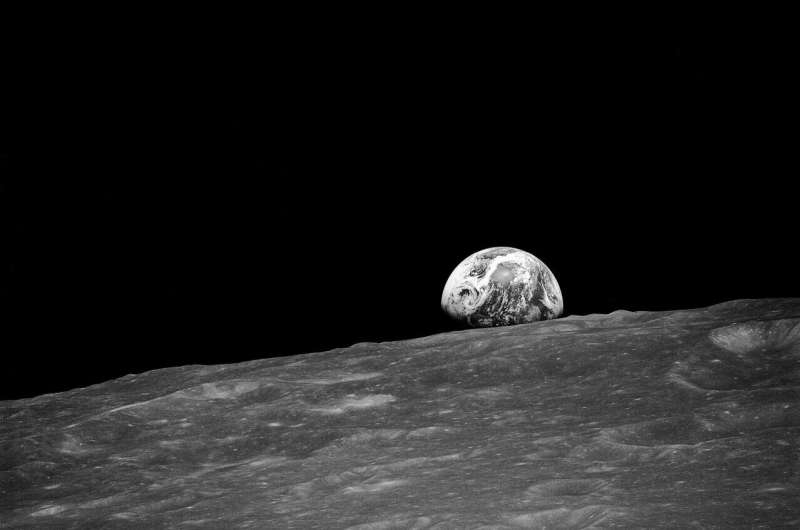
NASA's Orion spacecraft is heading home after exiting the lunar sphere of influence.
Orion completed the return powered flyby burn that put the spacecraft on course for splashdown on Sunday. Earth's force of gravity is now the primary gravitational force acting on the spacecraft.
Flight controllers used Orion's cameras to inspect the crew module thermal protection system and European Service Module, the second of three planned external spacecraft inspections.
Teams conducted this survey early in the mission to provide detailed images of the spacecraft's external surfaces after it had flown through the portion of Earth's orbit containing the majority of space debris, and teams reported no concerns after reviewing the imagery.
This second inspection during the return phase is being used to assess the overall condition of the spacecraft several days before re-entry.
Cameras on the four solar array wings have captured a series of still images. Engineers and flight controllers at NASA's Johnson Space Center in Houston will review the imagery over the coming days.
A final photographic survey will be conducted Friday as Orion continues its journey home.
Rare Apollo mission moon rock back in Cyprus after 50 years
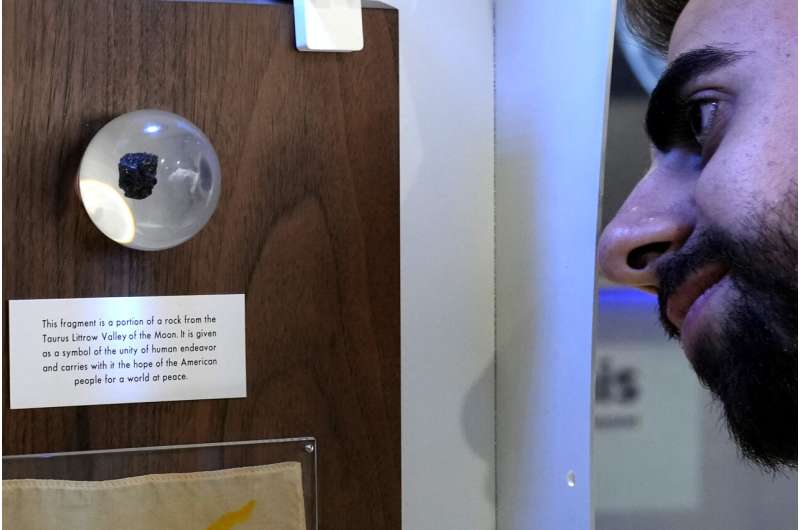
Sowing the seeds of future space travel
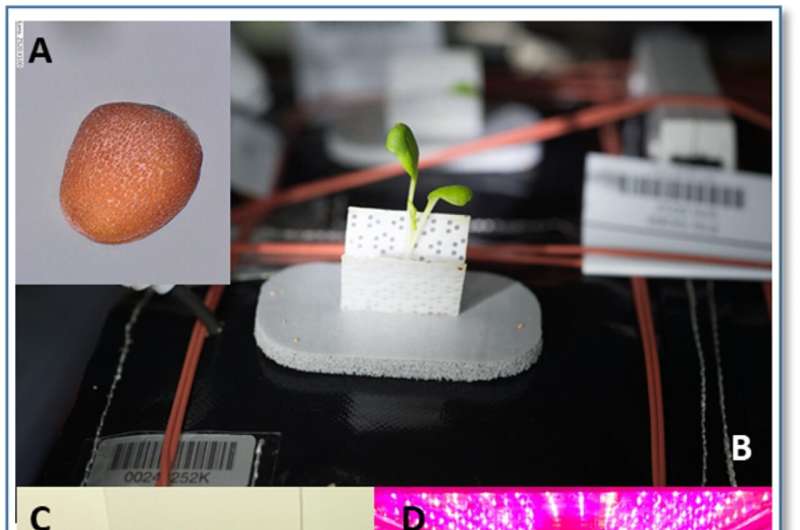
After 908 days in low Earth orbit, a small package on board the X-37B Orbital Test Vehicle-6 has come home to the delight of some biological scientists. Soon they will open an aluminum alloy container that holds samples of plant seeds that they hope can be used to sustain astronauts on long duration missions to the moon, Mars, and beyond.
Officially, it is known as a SEER experiment, short for Space Environment Exposure Research, a pathfinder mission supported by NASA's Biological and Physical Sciences Division (BPS) in collaboration with the US Air Force.
Unofficially, they're referred to as the "Thrive in Space" experiments—a way to underscore the stepping-stone research that scientists are undertaking to help advance their fundamental understanding of what it takes to grow and protect plants beyond our planet.
Rising Earth
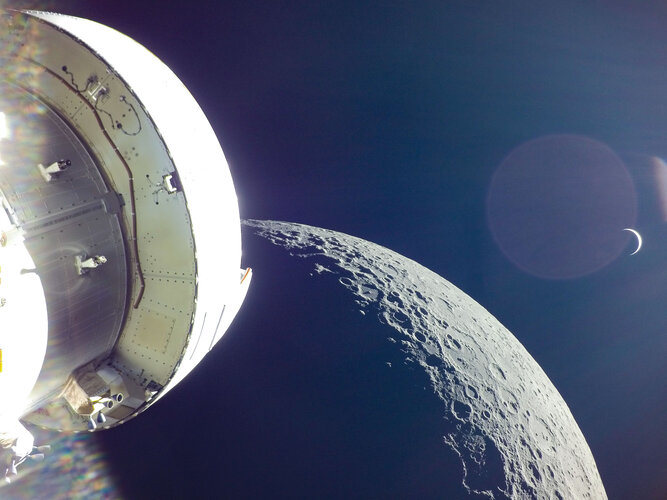 Image:
Image:
NASA’s Orion spacecraft, powered by ESA’s European Service Module, shares a stunning new take on ‘Earth rise’ following the return powered flyby of the Moon.
This image was taken on 5 December, flight day 20, after the spacecraft completed a 3 minute 27 second burn to swing around the Moon and back to Earth.
Just before the burn, Orion made its second and final close approach to the Moon at 17:43 CET (16:43 GMT), passing 130 km above the lunar surface.
The burn, which used the European Service Module’s main engine, changed the velocity of the spacecraft by about 1054
Arctic Sweden in race for Europe's satellite launches
 As the mercury drops to minus 20 Celsius, a research rocket lifts off from one of the world's northernmost space centres, its burner aglow in the twilight of Sweden's snowy Arctic forests.
Hopes are high that rockets like this could carry satellites as early as next year, in what could be the first satellite launch from a spaceport in continental Europe.
At the launch pad, about an hour
As the mercury drops to minus 20 Celsius, a research rocket lifts off from one of the world's northernmost space centres, its burner aglow in the twilight of Sweden's snowy Arctic forests.
Hopes are high that rockets like this could carry satellites as early as next year, in what could be the first satellite launch from a spaceport in continental Europe.
At the launch pad, about an hour From Shetlands to Azores, Europe's space race takes off
 Projects to develop space centres that can launch satellites into Earth's orbit are sprouting up around Europe, amid the soaring popularity of small rockets and the commercialisation of space.
By the end of this year, Spanish start-up PLD Space expects to launch its Miura-1 mini-rocket from the El Arenosillo site in the southern region of Andalusia.
Satellites will also be launched "in t
Projects to develop space centres that can launch satellites into Earth's orbit are sprouting up around Europe, amid the soaring popularity of small rockets and the commercialisation of space.
By the end of this year, Spanish start-up PLD Space expects to launch its Miura-1 mini-rocket from the El Arenosillo site in the southern region of Andalusia.
Satellites will also be launched "in t The future market for small satellites
 The German federal government has launched the Small Satellite Initiative with the aim of consolidating the German space industry and supporting small and medium-sized enterprises (SMEs), especially start-ups, actively involved in the small satellite sector. The Bundestag allocated 10 million euros for this purpose in 2022. On 6 December 2022, representatives from industry, research and politics
The German federal government has launched the Small Satellite Initiative with the aim of consolidating the German space industry and supporting small and medium-sized enterprises (SMEs), especially start-ups, actively involved in the small satellite sector. The Bundestag allocated 10 million euros for this purpose in 2022. On 6 December 2022, representatives from industry, research and politics Absolut Sensing selects NanoAvionics to build demonstration satellite to be launched first half of 2024
 Absolut Sensing, a subsidiary of the Absolut Group specialized in the measurement of greenhouse gas emissions, has achieved a significant milestone with the selection of satellite manufacturer Kongsberg NanoAvionics (NanoAvionics) to build its demonstration satellite dubbed "GEN1", after a rigorous selection process. Under the mission agreement, NanoAvionics will provide its 16U nanosatellite bu
Absolut Sensing, a subsidiary of the Absolut Group specialized in the measurement of greenhouse gas emissions, has achieved a significant milestone with the selection of satellite manufacturer Kongsberg NanoAvionics (NanoAvionics) to build its demonstration satellite dubbed "GEN1", after a rigorous selection process. Under the mission agreement, NanoAvionics will provide its 16U nanosatellite bu Orbital Assembly announces new equity offering to Advance Hybrid-Gravity Space Station development
 Orbital Assembly (OA), a leader in the race to make Hybrid-GravityTM space accessible for leisure, commercial and industrial activities has announced a crowdfunding equity offering (Regulation CF).
The company continues to seek investment to initiate full scale human factors design in conjunction with NASA Marshall Space Flight Center, to begin construction of the first orbital flight hard
Orbital Assembly (OA), a leader in the race to make Hybrid-GravityTM space accessible for leisure, commercial and industrial activities has announced a crowdfunding equity offering (Regulation CF).
The company continues to seek investment to initiate full scale human factors design in conjunction with NASA Marshall Space Flight Center, to begin construction of the first orbital flight hard 
